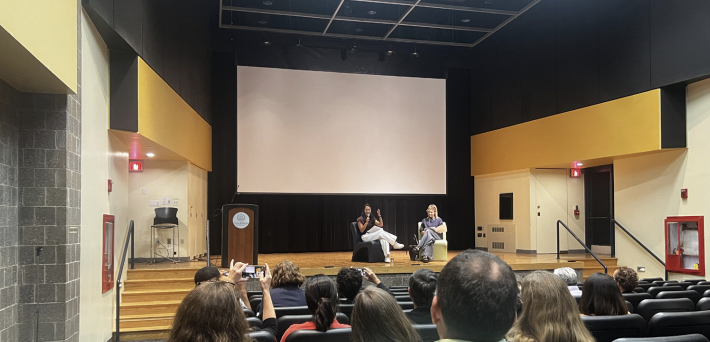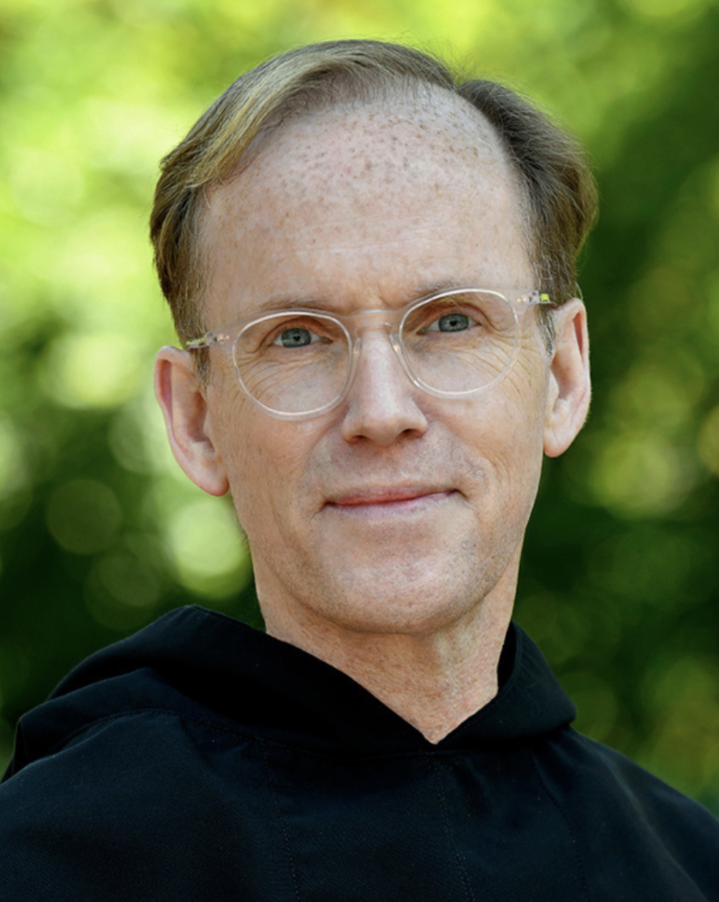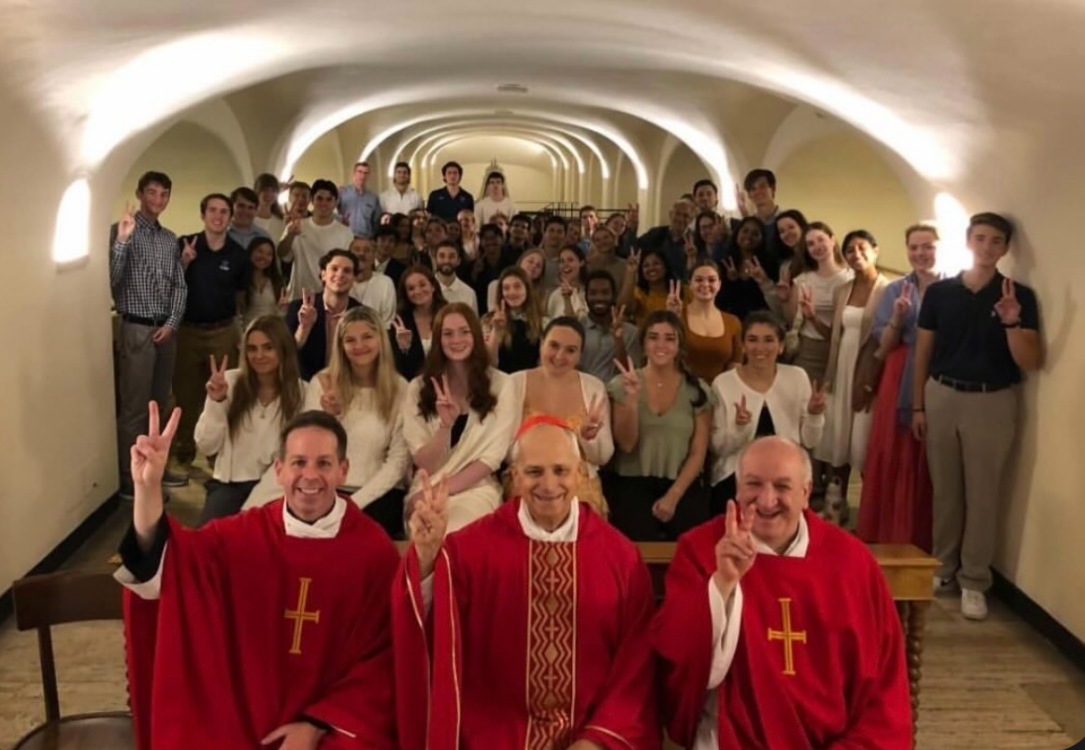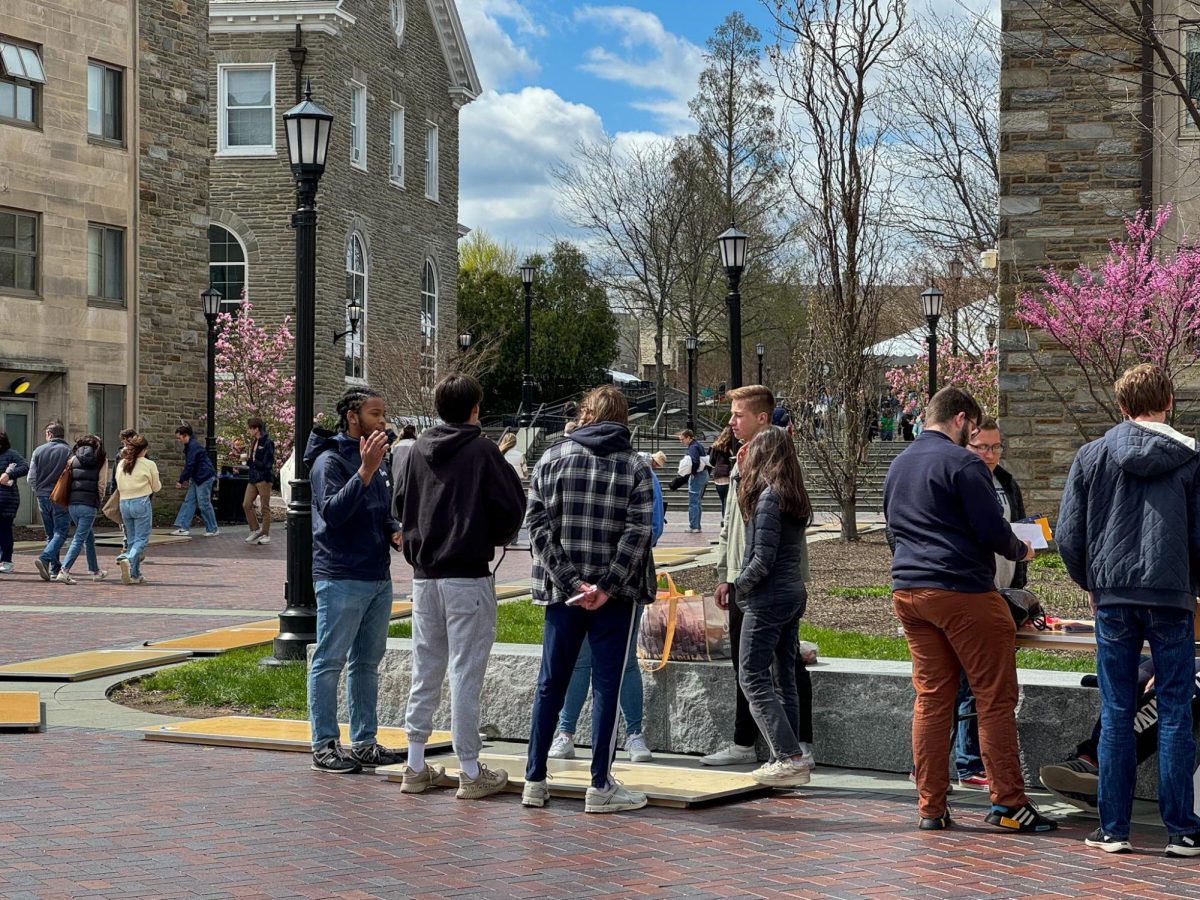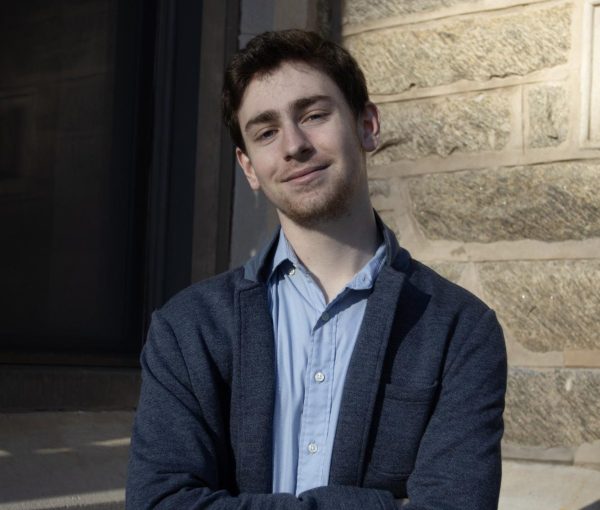In August of 2024, an educator in the Radnor Township School District, Sue Dahlstrom, notified Dr. Rachel Skrlac Lo, associate professor in the Department of Education and Counseling, of a must-see pre-released documentary film. Banned Together was being screened in Lancaster, Pennsylvania.
Months later, Villanova hosted its own screening of the documentary.
On Wednesday, Oct. 23, 2024, Villanova students, faculty, staff, local community teachers, librarians and family members gathered in the Connelly Center Cinema to screen Banned Together, a documentary film about book banning.
The film follows three high school senior activists from Beaufort, South Carolina as they work to combat book banning in their local community, fighting to reintroduce 97 books that were banned from their school libraries. They attend local school board meetings and also travel nationally, gaining the opportunity to speak in Chicago at the Right To Read Rally during the American Library Association’s annual conference.
Villanova’s screening was organized in collaboration with Lo; Dahlstrom; Dr. Adrienne Perry, assistant professor of English and creative writing and Writing and Rhetoric Program Director; Dr. Glenn Bracey, associate professor of sociology and criminology; Julianna Chen, graduate assistant and student in the Department of Education and Counseling; and Drew Gingrich, an educator in the Lower Merion School District.
“The topic of book bans and challenges is one that affects each of us,” Lo said in an emailed statement. “These book bans, which overwhelmingly target LGBTQ+ and racially minoritized individuals and communities, are impacting whose stories and experiences are included in classrooms. This has negative impacts on our ability to connect with people who are different than us, putting us at increased risk of ‘othering’ people and isolating ourselves from each other.”
Guests enjoyed snacks and light refreshments upon entering the cinema. Before the screening, Chen conducted a conversation with Amy Goldman, President of the Radnor Township Board of School Directors, to provide the audience context surrounding school boards.
The film began shortly afterward and lasted 90 minutes. It was very well-received among the versatile audience of diverse identities and backgrounds.
The organizers of this screening were left with the message to assist young people in their respective journeys for advocacy.
“This film encourages me to push even harder for my students to feel how empowered they are,” Bracey said. “I think a lot of people feel like their power is in the future or their power is only through other people, when, in fact, they have power now. Young people have a great deal of power now. I really want to get across to students in my classes and students all over campus that now is their time. They empower now.”
“I think we should work harder to listen to young people about what matters to them and to see them as partners in the future and not as infants that need to be curated in the future, but really as co-creators of our future,” Lo said.
“I hope that Villanovans take away from the screening that these issues are not out there, they are not abstract, but they are happening in our communities,” Perry said. “We can’t wait until we feel that it impacts us directly to care about it because it does impact us now.”
“I think the film screening holds a lot of truth because it talks about the power and the meaning behind using your voice,” Chen said.
Lo will research banned books and their effects further, as she continues investigating her thesis on multiracial representation in children’s literature.
“Book bans give us less information to learn about each other,” Lo said. “Do books provide us windows in our worlds? If we remove windows from our bookshelves, when we see people who aren’t like us, we can’t move toward understanding. We then see people different from us and we don’t find common points of connection.”

